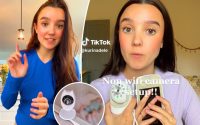AI can detect diabetes — just by listening to you talk: study
Talk to your robo-doctor.
New medical research finds that artificial intelligence can detect type 2 diabetes merely by listening to a patient speak for six to ten seconds.
The study by Klick Labs, published in “Mayo Clinic Proceedings: Digital Health,” showed an 89% accuracy rate for diagnoses in women and 86% for men, according to a release detailing the breakthrough.
“Our research highlights significant vocal variations between individuals with and without Type 2 diabetes and could transform how the medical community screens for diabetes,” said first author Jaycee Kaufman.
“Current methods of detection can require a lot of time, travel, and cost. Voice technology has the potential to remove these barriers entirely,” Kaufman continued.

Researcher had 267 individuals — who did or did not have type 2 diabetes — record phrases on their smartphones six times a day for two weeks. More than 18,000 recordings were analyzed for over 14 different acoustic features, which were different among diabetics and non-diabetics. Participants also provided basic health data like age, height, and weight.
Signal processing technologies were able to perceive certain notes of vocal pitch that do not register with the human ear. These hidden sounds provided the necessary clues, according to Kaufman.
“Our research underscores the tremendous potential of voice technology in identifying Type 2 diabetes and other health conditions,” Klick VP and principal investigator Yan Fossat said.

“Voice technology could revolutionize healthcare practices as an accessible and affordable digital screening tool.”
The next step for Klick is replicating the study and expanding the vocal search to look for pre-diabetes, hypertension and more.
This news follows a recent MIT breakthrough of a bio-implant which is able to mold itself more seamlessly to the body, aiding in the deployment of medicines such as insulin.


